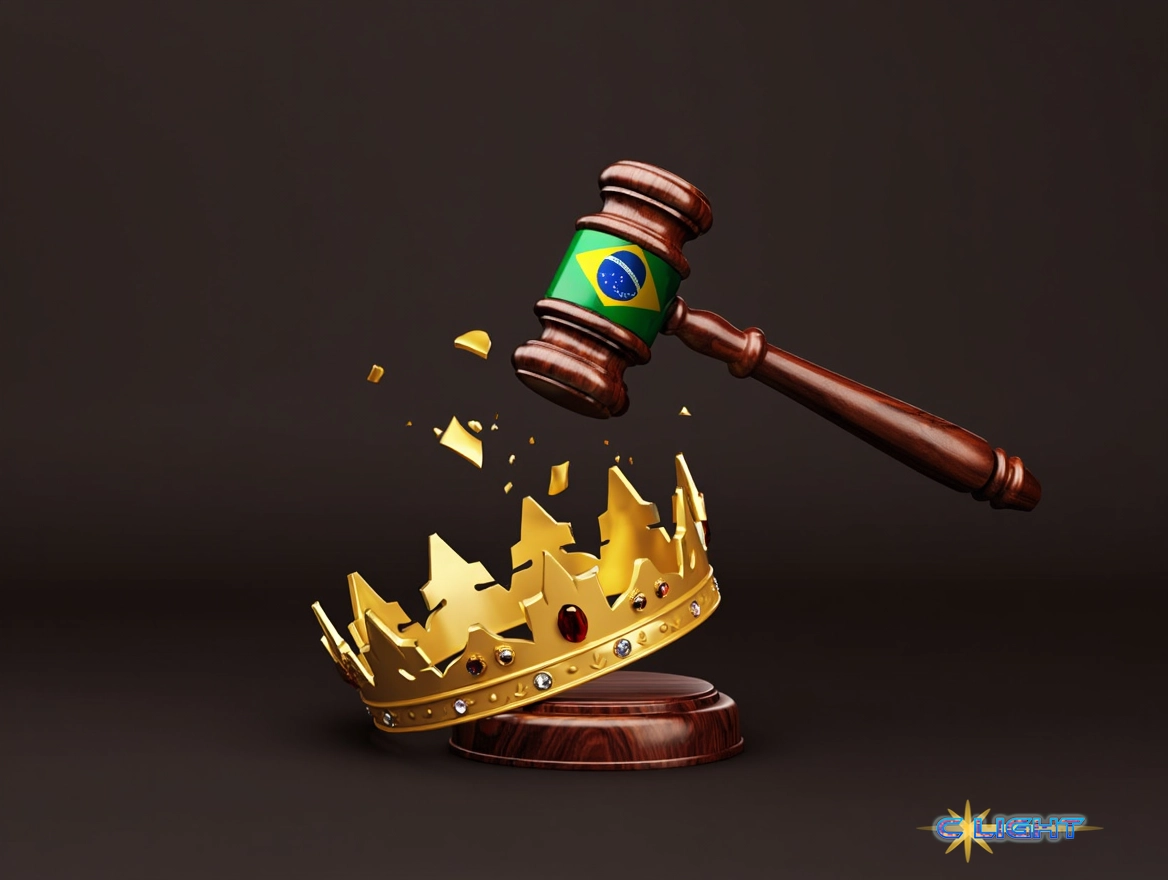4 minutes read time.
In a week filled with grim news of decaying alliances and unmanaged chaos, a stunning bolt of accountability shot out of the Southern Hemisphere. In Brasília, the Supreme Court of Brazil, in a historic and courageous act, found former president Jair Bolsonaro guilty of attempting to orchestrate a military coup to cling to power. For the first time, Latin America’s largest democracy held a former head of state to account for attacking the foundations of the republic. The verdict was a monumental victory for the rule of law, and it had a delightful side effect: it was a direct, resounding slap in the face to his friend and ally in Washington, Felonious Punk, who had tried, and failed, to bully the court into submission.
The scene outside the court was a perfect encapsulation of the national catharsis. As the decisive guilty vote was cast, a trumpeter who had spent years protesting the former president’s authoritarianism raised his instrument and played Chopin’s “Funeral March,” a somber elegy for a toxic political career. Then, capturing the joy of the moment, he launched into a lively samba. “It’s the end! It’s the end of this guy!” he declared. “Justice is done, comrades!”
And what a justice it was. The Brazilian court delivered its verdict in the face of a thuggish, multi-front pressure campaign. From within, they faced a populist movement that had, just a year earlier, stormed their own building in a riot that directly echoed the January 6th insurrection in the United States. From without, they faced the economic and diplomatic might of the U.S. President, who called the trial a “witch hunt” and slammed Brazil with 50% tariffs and personal sanctions against the presiding justice, Alexandre de Moraes, in an attempt to kill the case. The court’s response was a masterclass in judicial courage. “This attempt of obstruction will not affect the impartiality or independence of the justices in this court,” Moraes declared, adding that they would uphold the Brazilian Constitution “regardless of internal or external pressures.”
The case they upheld was a chilling portrait of a pathetic but deadly serious plot. The evidence, which Moraes called “overwhelming,” detailed a conspiracy that included plans to assassinate his successor, President Luiz Inácio Lula da Silva, and Moraes himself. The plan, codenamed “Operation Green and Yellow Dagger,” was not, as Moraes pointed out, “drafted in secret by terrorists.” It was written “in Brazil’s government headquarters, while Bolsonaro was in office.” He was the leader of what the court deemed a “criminal organisation” that included his defense ministers, the head of the navy, and his spy chief. This was not a protest that got out of hand; it was a deep-seated conspiracy at the highest levels of the state, orchestrated by a former army captain who once said Brazil would only change after “killing 30,000.”
The parallels to the situation in the United States are impossible to ignore. Two massive democracies, both wrestling with the aftermath of riots instigated by populist leaders who refused to accept election results. Both leaders have used the exact same playbook, crying “witch hunt” to delegitimize the legal systems holding them to account. But the outcomes, so far, have been starkly different. While the American legal process remains a protracted and politically fraught marathon, with the original Trump shielded from prosecution by the power of his office, the “Trump of the Tropics” faced swift and decisive justice. The Brazilian Supreme Court provided a powerful model for how a democracy can, and should, defend itself from a leader who believes he is above the law.
The White House’s justification for its interference was a sublime piece of Orwellian doublespeak. Press Secretary Karoline Leavitt claimed the President was unafraid to use American might “to protect free speech around the world”—a bizarre framing for the act of sanctioning foreign judges to stop a criminal trial of a political ally.

The conviction places Bolsonaro in the growing international club of far-right leaders, alongside France’s Marine Le Pen and the Philippines’ Rodrigo Duterte, who are facing legal condemnations for their actions. It is a sign that the global wave of impunity that has buoyed these figures for years may finally be receding. For Bolsonaro, who still commands the loyalty of millions, the fight is not over; he will appeal, and his allies will likely push for amnesty. But for now, a line has been drawn. A court with a spine looked a would-be autocrat—and his powerful American friend—in the eye and refused to blink. And for that, lovers of democracy everywhere can take a moment to celebrate.
Discover more from Clight Morning Analysis
Subscribe to get the latest posts sent to your email.










